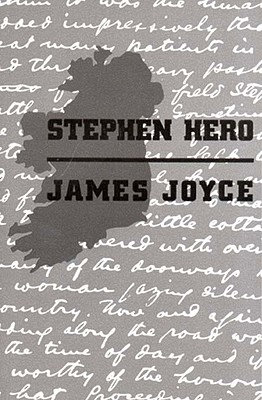APS TOGETHER
Day 2
Stephen Hero by James JoyceXVI, pp. 32-47
January 13, 2022 by Belinda McKeon
Chapter XVI: Stephen Daedalus is self-isolating. Don’t come within six feet of him. He’s pursuing his art, writing poems, and taking it very seriously indeed. When the College of Cardinals gather to elect a new pope, they’re walled into a chamber of the Vatican for however long the voting takes; it’s with a comparison to this kind of separation from the rest of society that this chapter opens. Except, of course, that Stephen considers himself even more separate than the cardinals, because at least they have each other as they quarrel over when to send up the white smoke; Stephen considers himself utterly apart. “Isolation,” he says solemnly to his brother Maurice, “is the first principle of artistic economy.” Not for him the “burgher notion,” meaning bohemian fancy, of the poet as someone like Byron, with verse pouring out of him “just as a city fountain pours out water”—he’s a classicist, is Stephen, not a romantic. Poems have to be worked for. They are made, not born. And they are made through hard work and intense dedication; “he put his lines together not word by word but letter by letter.” He’s a piece of work in himself, haughty and self-certain, full of contempt for his “idea-proof” classmates (I’m stealing that insult, by the way), but they certainly invite contempt, don’t they. Art? Art brings with it studios, and they don’t want studios in their country! Nudity! Decadence! Pleasure! “Talk about beauty, talk about rhythms, talk about aesthetics—they knew what all the fine talk covered.” There’s an echo here of Pegeen Mike in Synge’s The Playboy of the Western World, who falls for Christy Mahon’s “fine words” and “mighty talk” but is unable to ward off the moral panic that comes with going with them. But Stephen only looks with scorn on these parochial drones in his classes. He’s skipping class more often than not now, anyway, walking the city more fervently, more frequently, and taking other pleasures, too: chastity, “having been found greatly inconvenient," has been “quietly abandoned.” He feels “the morning in his blood." He’s young and the very opposite of idea-proof, and despite his contempt for his classmates, he’s becoming something of a personality around campus and around the city, so much so that on his way home from a party a journalist approaches him for a thought on the plays of Maeterlinck (as you do), and he’s going to a weekly salon at the home of a family of Dublin bohemians, and he’s taking long philosophical walks-and-talks with his brother Maurice and he’s… actually… not isolating at all, when you think about it. All talk, no quarantine. Well, that sounds familiar.
Something interesting about Joyce and the term “epiphany,” which is so often used in discussion of his work, in particular his Dubliners stories: for Joyce, an epiphany was something very specific, a type of prose form, a vignette which caught and recorded an experience or idea which had actually happened or occurred to him, and which he wrote out; between 1898 and 1904, he recorded over seventy of them, and he used these as the skeleton upon which to build Stephen Hero. If you’re interested in reading them all, or those which survive, they were collected by Robert Scholes and Richard M. Kain and published in 1965 as (fascinating title) The Workshop of Daedalus. The scene with the dog on the swampy sands at Fairview, with its “prolonged sorrowful howl," his “strange lamentation," comes directly from one of these epiphanies, as does the game of charades at the home of the Daniels family. That family were modeled on the Sheehy family, who lived near Belvedere College, where Joyce went to secondary school, and where he met Francis Skeffington, on whom McCann (in Portrait he becomes MacCann) is modeled. Skeffington was a fascinating figure, quite a beautiful presence in the culture and history of early 20th century Ireland; a feminist and a pacifist, he was an author and a Dublin eccentric. He took the name Sheehy-Skeffington after he married Hanna Sheehy, one of the Sheehy daughters on whom the “marriageable daughters” of the Daniels household in Stephen Hero are modeled. Sheehy Skeffington, despite his pacifism, was murdered in military custody during the 1916 rising in a manner which aroused public revulsion. It’s touching to see him as the young McCann here, jostling with Stephen, arranging games of charades, going around Dublin with his “Cavalier beard and shooting-suit," the look-at-this-fucking-hipster of his time.
